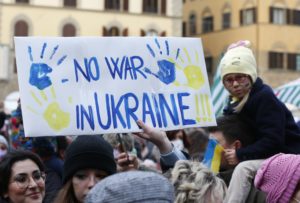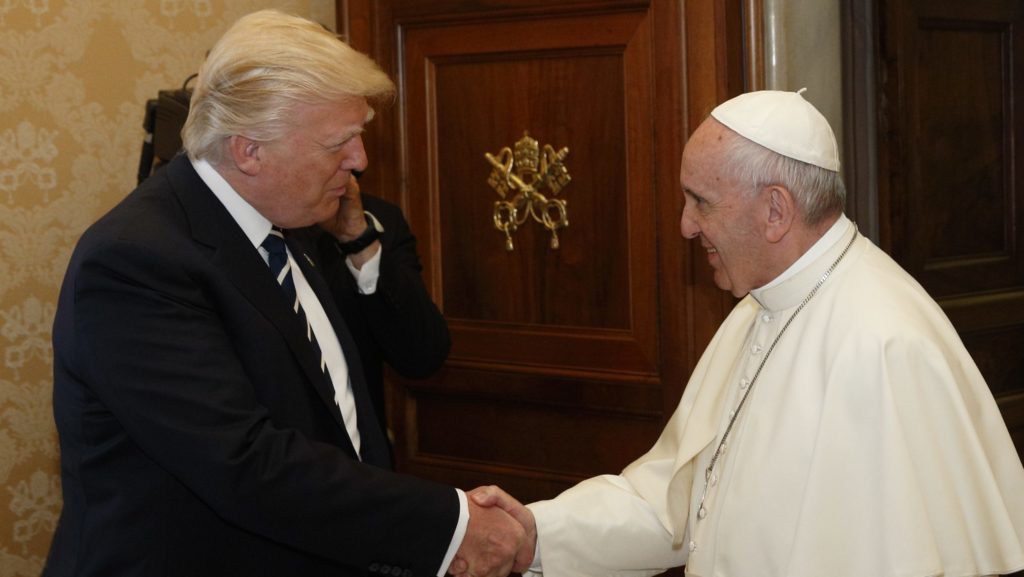ROME — Many boxing fans, especially those familiar with the history of the “Sweet Science,” recall to this day the classic 1952 heavyweight title fight between Jersey Joe Walcott, the reigning world champion, and upstart challenger Rocky Marciano.
Walcott knocked Marciano down in the first round, and for most of the rest of the fight seemed almost to be toying with him, using his superior reach to keep Marciano at bay and dancing around the ring while the challenger flailed away.
Prior to the fight, Walcott brimmed with confidence: “Write this down,” he boasted to reporters. “He can’t fight. If I don’t lick him, take my name out of the record books.” For 12 punishing rounds, he seemed absolutely right.
Yet in the 13th, the reeling Marciano suddenly put Walcott on the ropes and unleashed a mammoth right hook, a perfectly timed swing that caught the champ flush on the jaw, and that was that. The fight was suddenly, and shockingly, over.
Moral of the story: It’s not how you start that matters, it’s how you finish.
It’s a point worth bearing in mind as we ponder the prospects for U.S./Vatican relations during a second Trump term. At the outset, the odds of the White House and the Vatican finding common cause on anything for the next four years seem about as remote as Marciano beating Walcott after the 12th round.
After all, during President Donald Trump’s first term, the relationship with Pope Francis’ Vatican seemed to range from formal politeness to open contempt. The two sides disagreed on almost everything, from immigration and climate change to economic policy and the desirability of multilateralism in global affairs.
Memories are still fresh, to take a celebrated example, of the tiff that began when then-U.S. Secretary of State Mike Pompeo published an essay in First Things in which he called on the Vatican to disavow its accord with China on the appointment of bishops, warning that otherwise Rome risked losing its “moral authority.”
He repeated the point during a conference on religious liberty sponsored by the U.S. Embassy to the Holy See, prompting the Vatican’s Secretary for Relations with States, British Archbishop Paul Gallagher, to reveal in public that Francis would not be receiving Pompeo while he was in town.
Nor have things softened since then. Recently Gallagher’s boss, Cardinal Pietro Parolin, declared that the Vatican will not change its line on China “regardless of reactions that may come from America,” which seemed a clear shot across the bow.
It also probably doesn’t warm hearts in the Vatican that one of Trump’s most vocal Catholic supporters is the excommunicated Italian Archbishop Carlo Maria Viganò, the bête noire of the Francis papacy. (Viganò recently rejoiced that in the new Trump era, the Jesuits and “their pope” will suffer the same cancellation he claims they’ve inflicted on others.)
And, yet.
Yet, is there a chance for that one punch that could change everything, in this case turning confident forecasts of disaster into a surprising success story? If so, the greatest likelihood might turn out to be the war in Ukraine, where Francis and Trump improbably appear to see almost eye-to-eye.
To begin with, both Francis and Trump have never joined the broad Western chorus of vilification of Vladimir Putin.
Trump’s bromance with the Russian leader is well known, while Francis has steadfastly refused to condemn Putin by name, instead actually praising him as a “cultured person” who speaks German and English in addition to Russian, and with whom he’s had talks about literature.

In fact, the pontiff’s simpatico with Putin goes back to the beginning of his papacy in 2013, when the two leaders made common cause in heading off plans for a Western military incursion in Syria aimed at dislodging the regime of Bashar al-Assad.
Both Trump and Francis therefore enjoy entrée to the Russian leader and might be in a position to leverage his approach, especially if they act in concert.
Moreover, both Trump and Francis have suggested that Russia isn’t entirely to blame for starting the conflict.
In an October podcast, Trump suggested Volodymyr Zelenskyy was also responsible, calling him a great “salesman” who’s used the war to convince the West, and especially the U.S., to send billions in aid to Ukraine. Francis, meanwhile, famously has asserted that NATO “barking at Russia’s doors” through its expansion plans may “facilitated” Russian anger.
Both Trump and Francis also have called for a negotiated settlement to the war, potentially one in which Ukraine may need to cede territory in order to stop the bloodshed and secure peace.
Trump famously vowed to end the war “within a day” on the campaign trail, and although he’s never spelled out how he plans to do so, he’s also never ruled out asking Ukraine to make territorial concessions. Recently a Trump adviser said that a “serious” peace deal, for example, could not include Ukraine holding onto Crimea. While a Trump spokesman said the adviser, Bryan Lanza, did not speak for the president-elect, he didn’t exactly disavow the sentiment.
Francis, meanwhile, has suggested it may be time for Ukraine to exhibit the “courage of the white flag,” seeking a truce through negotiations.
“Do not be ashamed of negotiating, before things get worse,” the pontiff said.
Given all that, it’s at least possible to envision a scenario in which Trump applies American economic and military “hard power,” while Francis contributes the “soft power” of moral leadership, joining forces to create the conditions for a negotiated end to the bloodiest and most bitter European conflict since World War II.
If the stars align just right, Francis and Trump thus could go down as one of history’s all-time “Odd Couples.” Is that likely? Perhaps not, but it’s at least got what boxing aficionados call a “puncher’s chance” — and, every so often, those punches actually land.
Just as Jersey Joe Walcott.

